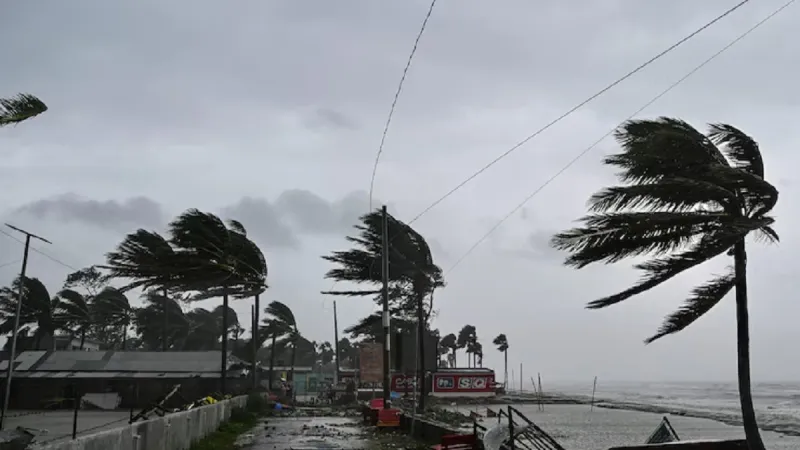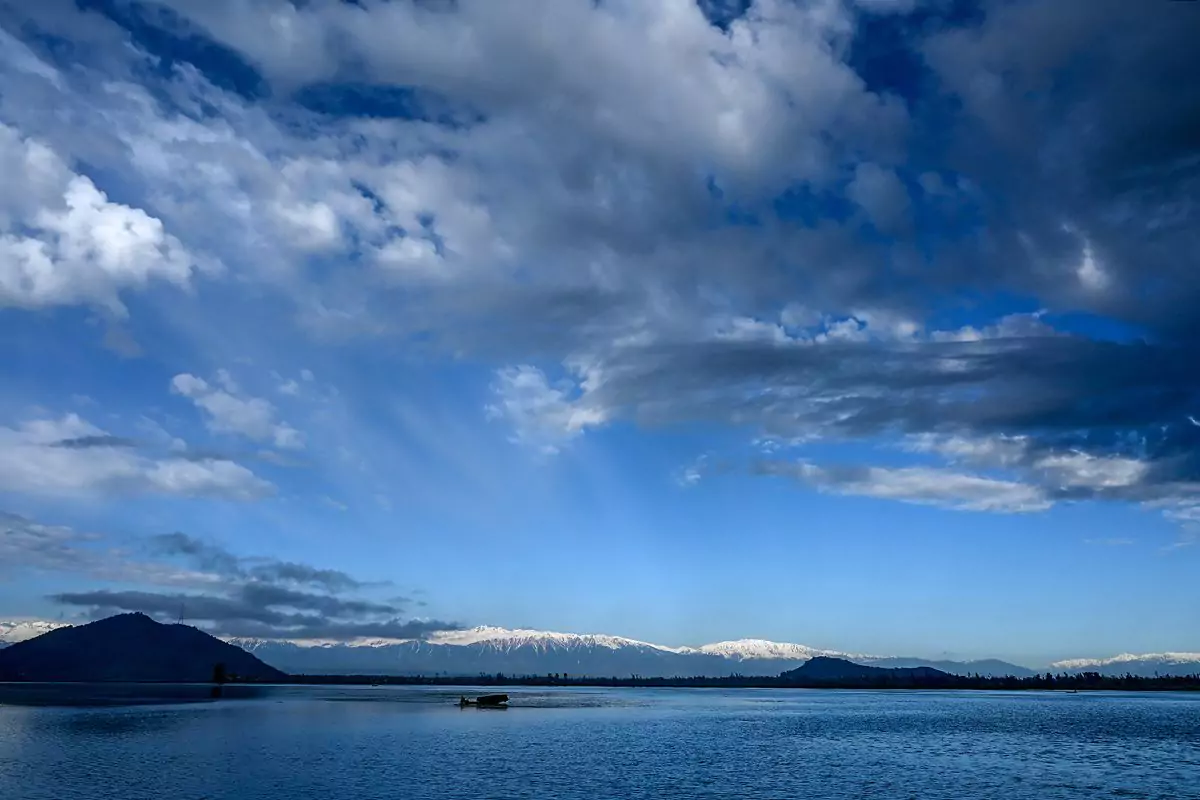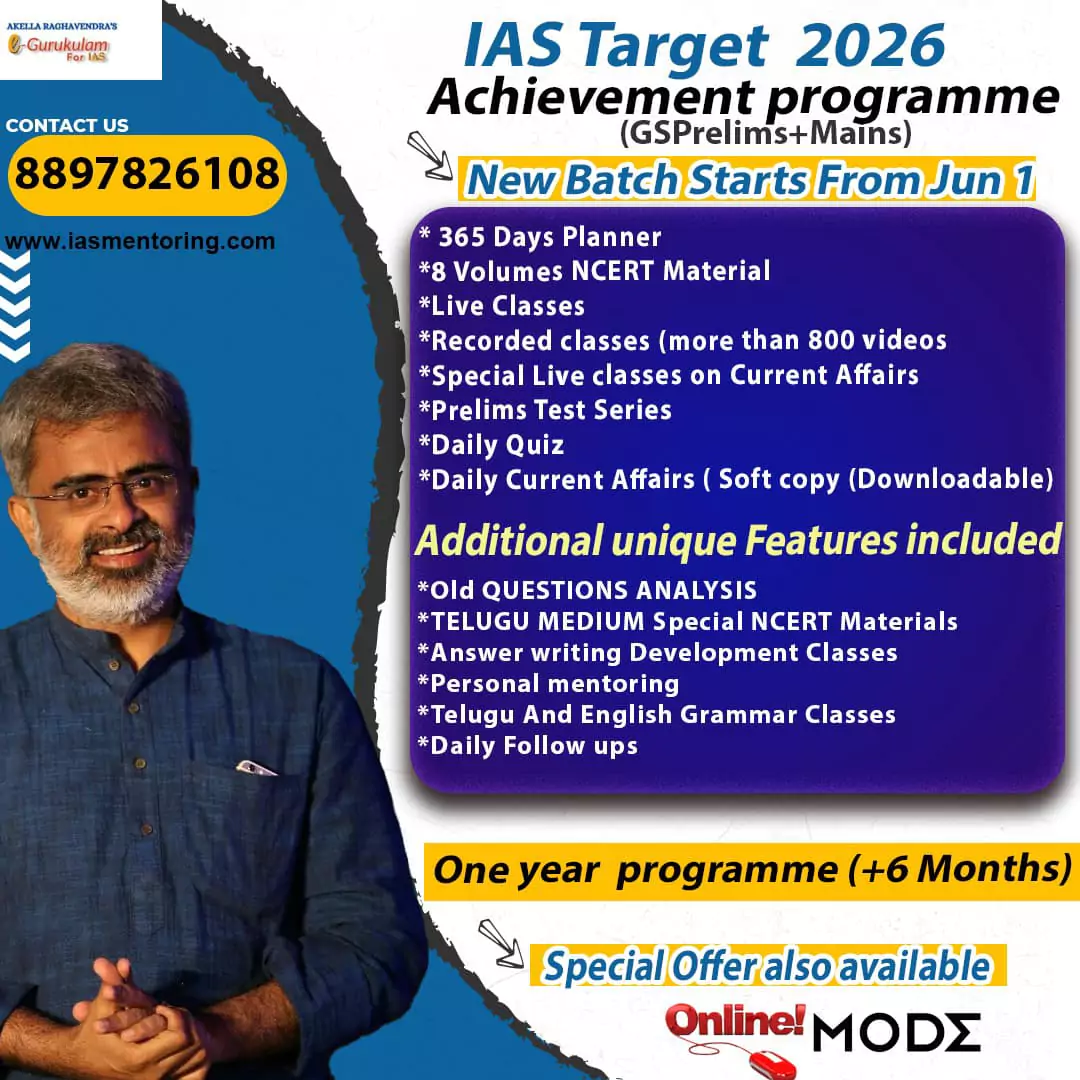Mission Mausam
Mission Mausam is a multidimensional initiative by the Government of India that aims to strengthen historical, cultural, economic, and climate resilience linkages among nations bordering the Indian Ocean. It draws inspiration from India’s ancient maritime trade routes, emphasizing the shared cultural and economic heritage of Indian Ocean Rim countries.
The initiative focuses on:
- Cultural diplomacy through the revival of ancient trade and navigation routes.
- Economic cooperation by promoting maritime trade and tourism.
- Climate resilience by improving disaster management and weather forecasting.
- Strengthening regional alliances with Indian Ocean Rim Association (IORA) nations.
Origins & Historical Background
Launch & Objectives
- Launched in 2014 by the Ministry of Culture and the Indira Gandhi National Centre for the Arts (IGNCA) in collaboration with the Archaeological Survey of India (ASI).
- Named after the "Mausam" (monsoon winds) that historically guided maritime trade in the Indian Ocean region.
- Aims to counter China’s Belt and Road Initiative (BRI) by fostering regional cooperation through cultural diplomacy.
Historical Significance
- India has been a maritime trade hub for over 2,000 years, connecting South Asia, Southeast Asia, the Middle East, and East Africa.
- Ancient Indian merchants, Buddhist monks, and travelers (e.g., Fa-Hien, and Xuanzang from China) traveled these routes.
- Indian Ocean trade flourished under empires like the Cholas, Mauryas, and Guptas, as well as during the Mughal period.
- The mission seeks to revive these lost trade networks and historical maritime linkages.
Key Components & Goals of Mission Mausam
| Component | Description |
|---|---|
|
Cultural Heritage Diplomacy |
Rediscover and promote shared cultural traditions across the Indian Ocean. |
|
Maritime Trade Revitalization |
Strengthen economic and trade partnerships among IORA nations. |
|
Archaeological & Historical Research |
Identify and protect ancient maritime sites and artifacts. |
|
Climate Resilience & Disaster Management |
Develop weather prediction systems and coastal protection measures. |
|
Tourism Development |
Promote cultural tourism by linking heritage sites across partner countries. |
Recent Developments (2024-2025)
-
Expansion of Climate Resilience & Weather Forecasting
- "Mission Mausam: Climate Ready Nation" (2024-2026) launched.
- ₹2,000 crore budget allocated for advanced weather monitoring and early disaster warning systems.
- New Climate Research Centers were established in Kerala, Tamil Nadu, and Odisha to monitor monsoons and cyclone patterns.
- India Meteorological Department (IMD) is leading the project with support from NASA and WMO (World Meteorological Organization).
- Target: Zero severe weather-related fatalities by 2047 (India’s 100th Independence Anniversary).
- Strengthening Economic & Trade Partnerships in the Indian Ocean
- New trade corridors proposed connecting India with Sri Lanka, the Maldives, Oman, and Indonesia.
- Port infrastructure modernization in Kochi, Chennai, and Vishakhapatnam to boost maritime trade.
- Partnerships with ASEAN & IORA for smoother trade regulations.
- India-Africa Trade Summit (2024): Strengthened blue economy initiatives (coastal trade, fisheries, and marine tourism).
- Digital Mapping & Conservation of Ancient Maritime Heritage
- Satellite-based mapping of ancient ports (e.g., Lothal, Muziris, Kaveripattinam).
- UNESCO collaboration for digitizing historical trade routes from India to the Persian Gulf, East Africa, and Southeast Asia.
- New maritime museums planned in Gujarat and Tamil Nadu to showcase India’s rich trade history.
- Boosting Cultural & Heritage Tourism
- Development of "Maritime Silk Route" tourism circuits with Sri Lanka, Myanmar, and Indonesia.
- Revival of ancient Buddhist pilgrimage routes connecting India to Southeast Asia (Bodh Gaya, Sarnath, Lumbini).
- New Heritage Festivals celebrating maritime history in Goa, Kerala, and Odisha.
- Private sector involvement in heritage conservation projects.
- Strengthening India’s Strategic Position in Indo-Pacific
- Increased defense cooperation with Indian Ocean nations to protect maritime trade routes.
- Mission Mausam discussed at the G20 & IORA summits (2024) as a model for cultural and economic diplomacy.
Strategic Importance of Mission Mausam
- Maritime & Trade Diplomacy
- Strengthens India’s influence in the Indo-Pacific
- Counters China’s String of Pearls Strategy & Belt and Road Initiative (BRI).
- Climate Change & Disaster Resilience (New Focus in 2024-25)
- Supports early warning systems for cyclones & monsoons.
- Helps coastal communities prepare for climate impacts.
-
Cultural Heritage & Soft Power
- Showcases India’s historical maritime legacy to the world.
- Attracts cultural tourism to heritage sites in India and partner countries.
-
Strengthening Ties with IORA & ASEAN
- Boosts cooperation with Indian Ocean nations.
- Encourages joint cultural and environmental projects.

Economic Significance of Mission Mausam
| Sector | Economic Benefits |
|
Trade & Shipping |
Boosts India’s exports and strengthens trade ties with Indian Ocean nations. |
|
Port Development |
Modernizing ports and trade routes for faster maritime connectivity. |
|
Tourism Industry |
Expands cultural and heritage tourism, generating revenue. |
|
Blue Economy |
Promotes sustainable fisheries, marine biotechnology, and coastal industries. |
|
Employment Generation |
Creates jobs in port logistics, tourism, conservation, and research. |
India's maritime trade accounts for 95% of its total trade volume. Mission Mausam can enhance connectivity and increase foreign investment in coastal trade zones.
Expanded Economic and Trade Dimensions
Developing India’s Port Infrastructure
- Major port development projects under Sagarmala Initiative linked to Mission Mausam:
- Chabahar Port (Iran) - Connects India with Central Asia.
- Sittwe Port (Myanmar) - Strengthens India’s connectivity with ASEAN.
- Kolkata Port Expansion - Improves trade with Bangladesh and beyond.
- Muziris Heritage Project (Kerala) - Links trade history with tourism.
Blue Economy & Sustainable Marine Resource Management
- Developing coastal industrial corridors for fisheries, aquaculture, and renewable energy (wind & solar).
- Promoting eco-friendly maritime tourism and heritage cruises.
- Strengthening marine biodiversity conservation projects.
Trade Agreements & Market Expansion
- India-Africa Economic Corridor: Strengthening ties with Kenya, Tanzania, and South Africa.
- ASEAN-India Maritime Trade Agreement: Facilitates free trade in the Indo-Pacific.
- Promoting "Make in India" shipbuilding projects under the Maritime India Vision 2030.
Cultural & Diplomatic Aspects of Mission Mausam
-
Strengthening India’s Soft Power Diplomacy
- India is a cultural leader in the Indian Ocean region.
- Promotes yoga, Ayurveda, and traditional Indian arts in partner countries.
- Establishing "India Culture Centers" in Southeast Asia and the Middle East.
- Enhancing India’s Influence in the Indo-Pacific
- Provides an alternative to China’s Belt and Road Initiative (BRI).
- Strengthens India’s role in regional organizations like IORA, ASEAN, and QUAD.
- Encourages cultural and economic integration through shared history.
- Protection of Shared Heritage Sites
- Collaboration with UNESCO & local governments to protect ancient port cities.
- Documenting Indo-Arab, Indo-African, and Indo-Southeast Asian cultural exchanges.
Enhanced Cultural and Historical Research Under Mission Mausam
Identification of Lost Maritime Heritage Sites
- Ongoing research on submerged ports and ancient trade routes using LiDAR and underwater archaeology.
- Recent discoveries (2024-25):
- Dwarka (Gujarat): Exploring remains of an ancient port city;
- Poompuhar (Tamil Nadu): Linking with the Chola dynasty’s maritime legacy.
- Barbarikon (Pakistan): – Ancient Indo-Greek trade hub.
Strengthening People-to-People Diplomacy
- New cultural exchanges between India and IORA nations.
- Introduction of Maritime History Studies in Indian universities.
- Promotion of Indo-Arab, Indo-African, and Indo-Southeast Asian folk traditions.
Digitization & VR Integration for Maritime Tourism
- Augmented reality (AR) & Virtual Reality (VR) Museums showcase India’s maritime past.
- Launch of a Digital Maritime Archives platform with real-time 3D models of ancient ports.
Environmental & Scientific Contributions of Mission Mausam
Coastal Protection & Climate Change Adaptation
- Mangrove Restoration Projects in West Bengal (Sundarbans), Odisha, and Kerala.
- Artificial coral reef projects to prevent marine biodiversity loss.
- Sustainable port development guidelines to minimize ecological damage.
Use of AI & Satellite Imaging for Climate Resilience
- NASA-ISRO collaboration for oceanographic studies and monsoon forecasting.
- Drones deployed for real-time monitoring of coastal erosion and sea level rise.
- Smart Early Warning Systems to protect vulnerable coastal cities.
Renewable Energy in Maritime Sectors
- Promoting offshore wind farms and solar-powered ports.
- Developing hydrogen fuel cells for green shipping.
Future Vision for Mission Mausam (2025-2047)
Short-Term Goals (2025-2030)
- Expand participation from IORA, African Union, and Pacific Island nations.
- Increase funding to ₹5,000 crore for integrated projects.
- Develop 10+ maritime heritage circuits in India.
Long-Term Goals (2030-2047)
- Position India as a global leader in maritime trade & heritage tourism.
- Fully digitized cultural archives for Indian Ocean heritage.
- Achieve zero severe weather fatalities through advanced forecasting.
Challenges & Possible Solutions
| Challenge | Proposed Solution |
|---|---|
|
Funding & Resource Allocation |
Increase private-public partnerships and foreign investment. |
|
Competition from China’s BRI |
Strengthen India's economic & strategic presence in the region. |
|
Climate Change Threats |
Implement coastal protection measures and eco-tourism. |
|
Lack of Awareness |
Promote digital campaigns, cultural exhibitions, and tourism programs. |
Mission Mausam has evolved beyond a cultural initiative into a comprehensive maritime, economic, and climate resilience strategy. New economic corridors, climate resilienceprojects, and Indo-Pacific partnerships are strengthening India’s role as a global cultural and maritime leader. The mission aligns with India’s long-term vision of "Viksit Bharat 2047," ensuring that maritime heritage, trade, and cultural diplomacy drive India’s global influence in the 21st century.
"Mission Mausam is not just about the past—it is about shaping India’s future in global trade, diplomacy, and sustainable development."

















